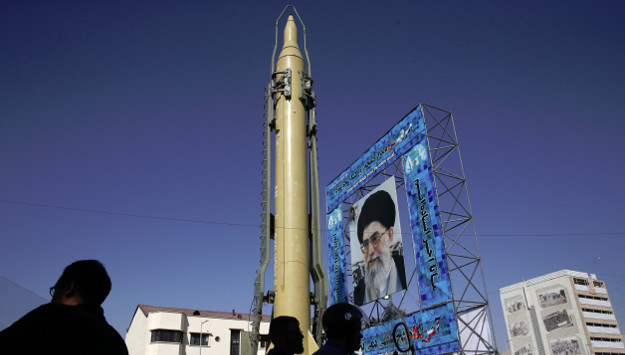The commander of the Islamic Revolution Guards Corps (IRGC) Aerospace Force announced on Friday that his forces will stage a “massive military drill” in the near future. "The main aim of the upcoming war game is to display IRGC's capabilities in producing the him-made military equipment," Brigadier General Amir Ali Hajizadeh said in a ceremony in the northeastern Iranian province of Khorsan-e Razavi. He also boasted that all military equipment to be used in the exercise, including ground-to-air missile systems, are locally designed and produced by Iranian scientists.
Last December, Hajizadeh also announced that his country had increased the production of ballistic missiles despite international restrictions. “In addition to enhancing the precision [precision-striking capability] and quality of ballistic missiles, [Iranian] authorities and experts in this field have used innovative and cross-cutting methods to make missiles at a lower cost. And today we are witnessing an increase in production despite shortage of credits,” he claimed.
Hossein Dehqan, Iran’s defense minister and a former IRGC air force general, had made a similar claim last August. He declared that the Islamic Republic did not have “any limit for the range of liquid or solid-fueled ballistic missiles,” and that the “production of the national individual weapons and efforts to improve the quality and precision-striking power of ballistic missiles are among the defense ministry's achievements in the defense field." And in March, Iran test-fired two ballistic missiles and one of them had “Israel should be wiped off the Earth” inscribed on it in Hebrew.
Despite the nuclear agreement Iran signed with world powers in July 2015, Tehran’s missile program has remained a serious matter of concern to the United States and its regional allies.
While most of the nuclear-related sanctions on Iran were lifted a year ago, unilateral US sanctions related to Iran’s ballistic missile program and terrorism remain in place. US lawmakers and some advisors to President Donald Trump have promised additional sanctions on Iran this year. On January 24, Republican Senators Marco Rubio, John Cornyn and Todd Young reintroduced the Iran Non-nuclear Sanctions Act, a bill that they claimed would “impose harsh financial and economic sanctions countering Iran’s non-nuclear provocations, including its ballistic missile violations, human rights abuses and support for international terrorism.”


